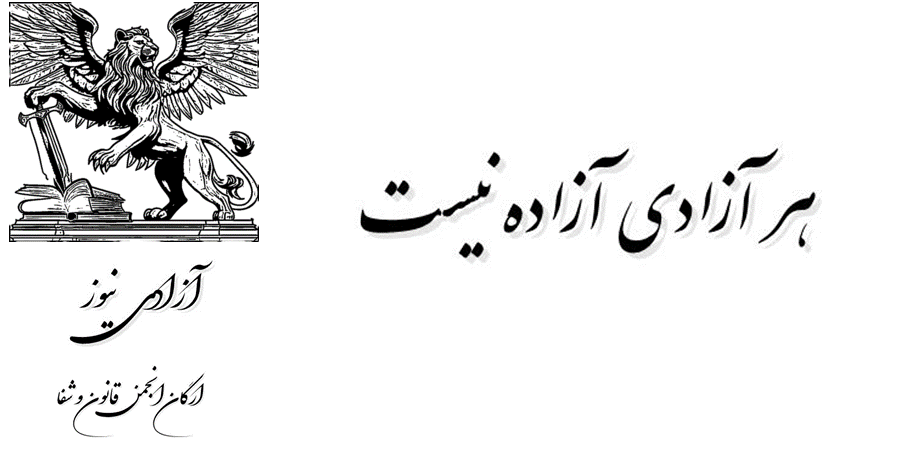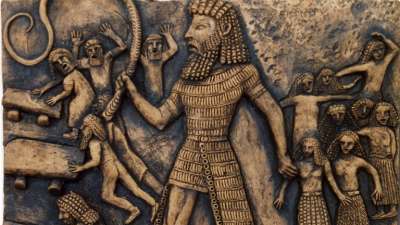In the previous note, we talked about the necessity of incorporating transcendent teachings into the process of philosophical evolution. In the depiction of philosophical knowledge, the system is surrounded by the supra-system (environment). Human mastery of the supra-system is sufficient but not complete; meaning humans do not know everything that transpires within the supra-system.
Schrodinger’s cat is unaware of the environment outside the system. Religions provide humans with one part of the thousands of parts of supra-system knowledge. The elements of environmental knowledge (manifested by the supra-system) include responses to fundamental questions such as justice, life after death, power, wealth, knowledge, love, and their pros and cons relatively demonstrated by transcendent knowledge, and their reverse theorem has also been elucidated throughout history (principle and reverse of phenomena).
The renowned Roman philosopher Epictetus stated: “Do not concentrate your efforts on controlling what is not within your control.” An Iranian throughout their life (willingly or unwillingly) engages in numerous activities and behaviors inherently; many of which remain incomplete, and contrary to a European or American, they sometimes do not evolve.
The founder of this existential philosophy, there is no will, and the shortcomings of Iranicity are not to be condemned, for many things in Iranicity do not reach perfection. As Iranian history also demonstrates, Iranicity did not evolve into republicanism akin to Atatürk’s Turkey. That is, Iranicity inherently enters into various phenomena but does not reach perfection and does not lead to it. Or better to say, its perfection remains elusive.
In the above context, a critical view is imposed on the esteemed Epictetus, that is, in transcendent or transcendent philosophy, the belief is that the path extends beyond life, not even an idea dies. Philosophy without metaphysics is limited to a lifetime. Greater mindsets may not find their perfection in a single lifetime, but they are wishes on the wheel of desires.
While we wish, we make small and imperfect efforts to learn art, knowledge, or justice; we take a short and necessary step, which may require millions of steps to reach the necessary destination. In Iranian-Platonic philosophy, at one point, spiritual teachings come, and your steps become either angelic or demonic, a surgery necessary to correct the path and continue the path of evolution. Transcendental (God-centered) Iranian philosophy and Platonic metaphysics know that there are many unknowns outside the system (Platonic Cave).
Iranian philosophy is calm, gradual, step by step, and based on hidden perfection and continuity. Not that the philosophy of world-centeredness (materialism) can be denied; hedonistic philosophy cherishes happiness, completeness, and victory, and has the potential for significant change. The sublime teachings in the Gilgamesh epic have also reached Gilgamesh from God (the transcendent region), meaning it has both transcendental elements and worldly meanings and benefits. In this sense, perhaps Siduri, the wise woman of the Gilgamesh epic, can be considered the first teacher of hedonism in history.
There is a great potential for hedonistic philosophy to remove obstacles in superficial and fundamental earthly ideologies (not philosophically and deeply). But ultimately, transcendent ideology can lead to some form of detachment from the world, extensive conservatism, or slowing down of life. But which is the truest path of life? Two teachers are necessary to bring the train of life to its destination. One is a teacher who upholds transcendental discourse, ethics, and nobility, and the other is a king who breaks obstacles and sets the course of life in motion.
Dr. Amir Ali R. Davoudpour
Secretary of the Law and Healing Society
Direct translation from Persian article by: OpenAI. (2024). ChatGPT (3.5) [Large language model]. https://chat.openai.com
Original article: ,در محدودیت فلسفه غیر افلاطونی ( و غیر ایرانی), Amirali R. Davoudpour, 18.03.2024, AzadiNews
- لزوم نگرش فرازمانی به موضوعات عمده تاریخی، امیرعلی رستم داودپور، آزادی نیوز، 22.دسامبر.2023 ↩︎
- Allegory of the Cave, Plato ↩︎
- در ترجمه شاملو آمده که «سیدوری سابیت» خاتون فرزانه و نگهبان درخت زندگی با او میگوید: “گیلگمش! به دنبال چه در تکاپویی؟ حیاتی را که میجوئی بازنخواهی یافت. آن زمان که خدایان به آفرینش آدمی آستین برزدند، مرگ را نصیب او کردند و حیات در کف ایشان است. پس تو، روز و شب را به شادی میگذار. هرروز نشاطی نو میکن. روز و شب به پایکوبی و رامشگری بگذار. جامههایت پاک باد. موی شسته و اندام پاکیزه کرده، کودکی ببین که دست خویش در دست تو دارد! باشد که محبوب تو بر سینه تو نشاط کند که آنچه از آدمی ساخته تواند بود همه این است”. ↩︎



